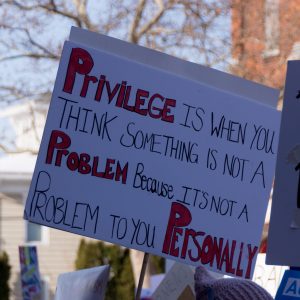A research study about domestic violence in the Jewish communities in the Prairie provinces suggests verbal abuse among Jews is higher than in the general population and that Jewish victims tend to rely more on the support of friends and family than social services.
The study, titled Assessing Domestic Violence in the Jewish Communities of the Prairie Provinces, initiated by Andrea Silverstone, the shalom bayit program co-ordinator for Jewish Family Service Calgary, said 241 participants from Alberta, Manitoba and Saskatchewan took part in the survey.
Of those who completed the survey, 77 per cent were female.
Among the findings were that 28 per cent of the respondents were survivors of domestic abuse.
Silverstone said that figure is consistent with the rest of the Canadian population, where between one-quarter to one-third have been, or are, victims of abuse.
However, the rates of psychological and emotional abuse were higher in the Jewish population compared to the mainstream population.
READ: STUDY EXAMINES JEWISH DOMESTIC VIOLENCE ON PRAIRIES
This study shows that the most common forms of abuse experienced during adulthood were psychological/emotional abuse at 82 per cent, and verbal abuse at 70 per cent, whereas the Canadian figure sits at about 48 per cent for verbal and emotional abuse.
“When [the mainstream population] talk about their abuse, they don’t necessarily talk about such high levels of verbal and emotional abuse. It’s usually pretty evenly spread around verbal, emotional, sexual, and then physical abuse is usually lower,” she said.
Silverstone said she can only speculate about why the incidence of verbal abuse is higher in the Jewish community.
“It might be, in part, due to the our culture being a very verbal culture, and that might make it easier to perpetrate violence that way. It could be due to a perceived acceptability of verbal violence over physical violence.”
She said previous studies on domestic violence in the Jewish community have suggested that Jewish women tend to stay up to three times longer in abusive relationships than non-Jewish women. This may allow for the verbal abuse to escalate or occur more often.

“What service providers and the community need to do is raise awareness about the fact that verbal abuse is a form of domestic violence and should not be minimized. Often women say, ‘He didn’t hit me, so it’s not that bad.’ In some ways verbal abuse is more insidious than physical violence, as it tears away at a victim’s self -worth,” Silverstone said.
Another noteworthy finding was that those who experienced domestic violence most often first disclosed the abuse to friends and family, rather than service providers.
That raised a questions about whether the programs and services for Jewish victims of abuse should be traditional programs and services such as shelters, or programs and services that include friends and family as a bigger part of the service model.
“Jewish women don’t generally access women’s shelters or other traditional services and they didn’t generally find them helpful,” Silverstone said.
“It’s not about developing more services like the services that exist, but in developing specialized services for people who naturally access supports in their life.”
She said she imagines something similar to a program like Alcoholics Anonymous.
“Being a support for someone who is going through an abusive situation requires that kind of support of the informal supporter.”
Silverstone said it’s similar to the support one might receive from friends and family through a health scare.
“I think of it in terms of when someone gets a cancer diagnosis. Often the cancer centre will say, ‘When you come, bring one or two support people with you – one person to hold your hand and one person to take notes – because you’re not going to hear any information I’m giving you,’” she said.
“Why don’t we engage friends and family in the same way regarding domestic violence services, especially if Jewish women are saying, ‘That’s what my biggest support system is and that’s who I’m disclosing to first?’”
Silverstone said she expects the results of the study will help service providers to develop programs that cater specifically to Jewish victims of abuse both financially and socially.
“I’m also hoping it will be used by federations to talk about how they are going to invest in this issue,” she said.
“Domestic violence is not just about the victim. It’s about the victim, the perpetrator and the entire community that is impacted… We need to understand through this study that domestic violence… is not just an individual’s family issue or only a part of our community’s issue.”
If you or someone you know is suffering abuse, call Connect, the Family and Sexual Abuse Network at 1-866-606-7233.







